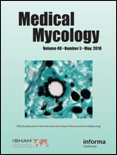
MEDICAL MYCOLOGY
metrics 2024
Exploring Innovations in Fungal Disease Management
Introduction
MEDICAL MYCOLOGY, published by Oxford University Press, is a premier journal dedicated to the study of fungal infections and their clinical implications. With an ISSN of 1369-3786 and an E-ISSN of 1460-2709, this journal has established itself as a vital resource in the fields of Infectious Diseases and Medicine, holding a respectable Q2 ranking for both categories and a Q1 ranking in the veterinary sector in 2023. Spanning a rich history from 1962 to 2024, MEDICAL MYCOLOGY serves as a platform for innovative research, case reports, and review articles that contribute to the understanding and management of mycological diseases. The journal's commitment to advancing knowledge is reflected in its Scopus rank of #120 out of 344 in Medicine - Infectious Diseases, positioning it within the 65th percentile. With open access options available, it aims to ensure that critical research is accessible to a global audience, enhancing collaboration and knowledge sharing among researchers, healthcare professionals, and students alike.
Metrics 2024
 0.58
0.58 2.70
2.70 3.20
3.20 105
105Metrics History
Rank 2024
Scopus
IF (Web Of Science)
JCI (Web Of Science)
Quartile History
Similar Journals
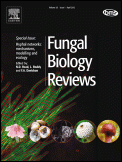
Fungal Biology Reviews
Synthesis and Insight in Fungal StudiesFungal Biology Reviews is a premier academic journal published by Elsevier Science Ltd, focusing on the rapidly evolving field of fungal biology. With an ISSN of 1749-4613 and an E-ISSN of 1878-0253, this journal has established itself as a leading resource for researchers, academics, and professionals dedicated to advancing our understanding of fungi and their ecological, agricultural, and medical implications. As a testament to its impact and quality, Fungal Biology Reviews holds a distinguished Q1 classification in both Microbiology and Plant Science categories for 2023, with a notable rank of 26 out of 182 in the Microbiology category. The journal uniquely blends comprehensive reviews that synthesize current research findings with forward-looking perspectives that pave the way for future studies, making it indispensable for anyone involved in fungal research. Although it operates under a traditional access model, its commitment to fostering impactful scholarship ensures that it remains relevant and widely cited within the academic community. Spanning from its inception in 2007 through to its projected conclusion in 2024, Fungal Biology Reviews continues to shape the framework for future discoveries in fungal biology.
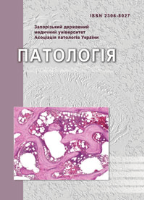
Pathologia
Fostering Collaborative Discoveries in Health SciencesPathologia is a prominent open-access journal dedicated to advancing the field of clinical and experimental pathology, published by ZAPORIZHZHYA STATE MEDICAL UNIVERSITY. Established in 2013, the journal aims to provide a platform for researchers, clinicians, and students to share innovative research, case studies, and reviews that are critical to understanding disease mechanisms and improving diagnostic and therapeutic strategies. With a steady commitment to high-quality research dissemination and accessibility, this journal serves as an essential resource for those in the medical and health sciences fields. Researchers engaging with Pathologia can explore a diverse range of topics, including histopathology, molecular pathology, and laboratory medicine, promoting both scholarly discussion and practical applications. The journal's open-access model ensures that vital research findings are freely available to the global academic community, fostering a collaborative environment that is crucial for the advancement of pathology as a discipline.

FUNGAL GENETICS AND BIOLOGY
Fostering Collaboration in Fungal ResearchFungal Genetics and Biology is a leading peer-reviewed journal published by Academic Press Inc, Elsevier Science, dedicated to advancing the understanding of fungi through innovative genetic and biological research. Since its inception in 1996, this journal has served as a vital platform for the dissemination of critical findings in the fields of Genetics and Microbiology, maintaining a distinguished Q2 category ranking in both disciplines as of 2023. With an ISSN of 1087-1845 and an E-ISSN of 1096-0937, the journal emphasizes the intersection of genetics and molecular biology to explore fundamental questions related to fungal biology that are of paramount importance to various applications in biotechnology, medicine, and environmental science. Researchers, professionals, and students alike will find this journal invaluable as it not only covers current trends and breakthroughs but also encourages collaborative efforts across the scientific community. Fungal Genetics and Biology continues to shape the future of fungal research well into 2024 and beyond, offering rich insights and open access options for a global audience.
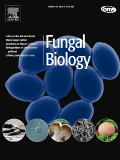
Fungal Biology
Championing Interdisciplinary Approaches in MycologyFungal Biology, published by Elsevier Science Ltd, is a premier journal dedicated to advancing the field of mycology and its interdisciplinary applications. With an ISSN of 1878-6146 and E-ISSN 1878-6162, this journal serves as a vital platform for researchers and professionals interested in the ecological, evolutionary, and genetic aspects of fungi, as well as their implications in infectious diseases and plant sciences. As of 2023, it proudly holds a Q2 ranking in Ecology, Evolution, Behavior and Systematics and Plant Science, and a Q3 ranking in Genetics and Infectious Diseases, highlighting its significant contribution to these domains. The journal boasts an impressive Scopus rank, including a percentile of 83rd in Ecological studies, ensuring that published research reaches a wide audience and impacts ongoing discourse in the field. With open access options, Fungal Biology encourages the dissemination of high-quality research, aimed to foster collaboration and innovation among scholars and practitioners. With its convergence of knowledge from 2010 to 2024, this journal is instrumental for those advancing the understanding of fungal biology and its myriad applications in environmental and health sciences.

Malaysian Journal of Microbiology
Transforming Microbial Research into Real-World ApplicationsMalaysian Journal of Microbiology is a prestigious open-access journal dedicated to advancing the field of microbiology, published by the Malaysian Society for Microbiology. Since its inception in 2005, this journal has become an essential platform for researchers and practitioners, facilitating the dissemination of innovative studies in applied microbiology, biotechnology, and infectious diseases. Based in Penang, Malaysia, this journal not only focuses on local microbiological research but also positions itself within the broader global scientific community. Although currently placed in the Q4 category in several relevant fields—including Applied Microbiology and Biotechnology, Infectious Diseases, and Medical Microbiology according to the 2023 Scopus rankings—it plays a crucial role in encouraging novel research and fostering collaboration among scientists. The journal encourages submissions that contribute to the understanding of microbial processes, disease mechanisms, and novel biotechnological applications, thereby supporting the continuous growth of knowledge in microbiology. With open access since its launch, the Malaysian Journal of Microbiology ensures that all published works are freely available to the public, enhancing their visibility and impact within the scientific community.
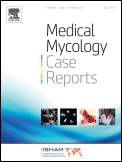
Medical Mycology Case Reports
Connecting the dots between diagnosis and treatment in mycology.Medical Mycology Case Reports, published by Elsevier, is a pivotal journal dedicated to advancing the field of mycology through the presentation of case reports that highlight clinical findings, diagnostic challenges, and treatment outcomes associated with fungal infections. With its ISSN 2211-7539 and E-ISSN 2211-7539, this open-access journal has been serving the global community since 2012, allowing unrestricted access to its valuable insights. Situated in the Netherlands, specifically at RADARWEG 29, AMSTERDAM, this journal has gained recognition in areas such as Infectious Diseases (ranked Q3) and Microbiology (ranked Q4) as of 2023. Its commitment to disseminating high-quality research is reflected in its Scopus rankings, which place it at the 51st percentile in Medicine and the 32nd percentile in Immunology and Microbiology. By bridging the gap between clinical cases and academic research, Medical Mycology Case Reports plays a crucial role in enriching the knowledge base of practitioners and researchers alike, ultimately contributing to improved patient management and public health.
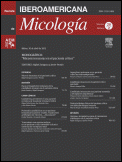
REVISTA IBEROAMERICANA DE MICOLOGIA
Elevating Knowledge in Fungal Studies and PathologyREVISTA IBEROAMERICANA DE MICOLOGIA, published by the ASOCIACION ESPANOLA MICOLOGIA-AEM, is a vital resource for those engaged in the study of mycology and infectious diseases. With a history spanning from 1996 to 2024, this journal is committed to advancing knowledge in the field through the dissemination of high-quality research articles, reviews, and case studies. Although it currently features a Q3 ranking in Infectious Diseases and a Q4 ranking in Microbiology for 2023, its impact is significant given the niche focus it serves, catering to a specialized audience of researchers and practitioners. While access is not open, the journal continues to be a preferred platform for scholarly communication among professionals in Spain and beyond. The editorial office, located in Bilbao, serves as the hub for rigorous peer-review and publication processes, ensuring that the latest advancements and findings in the field of mycology are effectively shared within the scientific community.
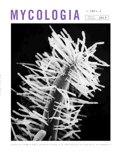
MYCOLOGIA
Innovative insights into fungal biology and ecology.MYCOLOGIA, published by Taylor & Francis Inc, is a prestigious journal that has been at the forefront of fungal research since its inception, with converging years of publication from 1945 to 2024. This interdisciplinary journal, identified by ISSN 0027-5514 and E-ISSN 1557-2536, stands out in various scientific categories, achieving Q1 rankings in Ecology, Evolution, Behavior and Systematics, as well as Plant Science, alongside strong performances in Cell Biology and Molecular Biology categories. With an impact factor that reflects its significance in the field, MYCOLOGIA appeals to a diverse audience, including researchers, professionals, and students dedicated to advancing the understanding of fungal biology and its ecological implications. Notably, while it does not currently operate under an Open Access model, the journal remains a vital resource for those pursuing groundbreaking discoveries in mycology and related disciplines.
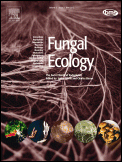
Fungal Ecology
Fostering Global Collaboration in Fungal ResearchFungal Ecology, published by Elsevier Science Ltd, is a leading international journal dedicated to the exploration and advancement of our understanding of fungal biology and its ecological significance. With an impressive impact factor and recognized in the second quartile (Q2) across various categories such as Ecological Modeling, Ecology, Ecology, Evolution, Behavior and Systematics, and Plant Science, this journal offers a critical platform for researchers and professionals to disseminate and discuss innovations in fungal ecology. Since its inception in 2008, the journal has built a solid reputation, particularly highlighted by its impressive Scopus rankings, including a top percentile status in ecological fields. Researchers are encouraged to submit their findings that contribute to the understanding of the ecological roles of fungi, their interactions within ecosystems, and their applications in environmental science. Although the journal does not offer open access, it remains a vital resource for academics and practitioners aiming to stay ahead in the rapidly evolving fields of fungal research and ecology. Located in the vibrant heart of the Netherlands, the journal continues to foster scholarly engagement and collaboration among scientists globally.

MYCOPATHOLOGIA
Exploring the intersection of agriculture and veterinary microbiology.MYCOPATHOLOGIA, published by Springer in the Netherlands, stands as a pivotal journal in the fields of mycology, plant science, and veterinary microbiology. With its extensive history dating back to 1938, this journal has consistently contributed to the understanding of fungal pathogens and their impact on both agriculture and animal health. It currently holds impressive rankings in Scopus, including Q1 status in Agronomy and Crop Science, and Q2 rankings in Applied Microbiology and Biotechnology, demonstrating its influence and rigor in the scientific community. Researchers and professionals benefit from its curated, high-quality studies which address critical areas such as plant-pathogen interactions and veterinary mycology. While not open access, MYCOPATHOLOGIA emphasizes comprehensive research output and serves as a vital resource for advancing knowledge and fostering innovation in its disciplines. The journal remains committed to disseminating valuable insights that drive forward both academic inquiry and practical applications in related fields, ensuring its relevance and importance in contemporary research.